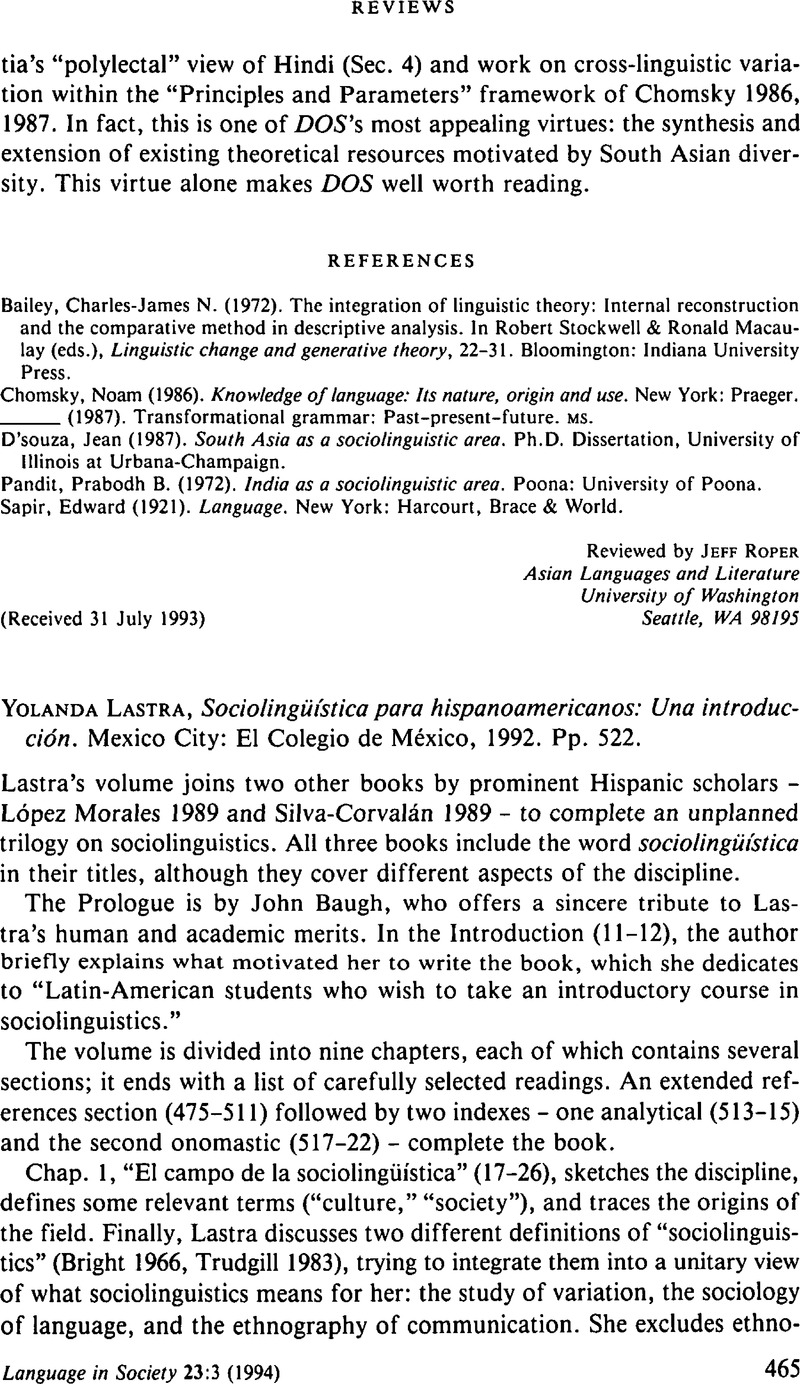No CrossRef data available.
Article contents
Yolanda Lastra Sociolingüística para hispanoamericanos: Una introducción. Mexico City: El Colegio de México, 1992. Pp. 522.
Published online by Cambridge University Press: 19 February 2009
Abstract
An abstract is not available for this content so a preview has been provided. Please use the Get access link above for information on how to access this content.

- Type
- Reviews
- Information
- Copyright
- Copyright © Cambridge University Press 1994
References
REFERENCES
Bernstein, Basil (1964). Elaborated and restricted codes: Their social origins and some consequences. In Gumperz, John J. & Hymes, Dell (eds.), The ethnography of communication (American Anthropologist, 66:6, supplement), 55–69.Google Scholar
Bortoni-Ricardo, Stella Maris (1985). The urbanization of rural dialect speakers: A sociolinguistic study in Brazil. Cambridge & New York: Cambridge University Press.Google Scholar
Bright, William (1966). Introduction. In Bright, W. (ed.), Sociolinguistics: Proceedings of the UCLA Sociolinguistic Conference, 11–15. The Hague: Mouton.Google Scholar
Escobar, Alberto, ed. (1978). Variaciones sociolingüísticas del castellano en el Perú. Lima: lnstituto de Estudios Peruanos.Google Scholar
Fontanella de Weinberg, María Beatriz (1979). Dinámica social de un cambio lingüístico: La reestructuración de las palatales en el español bonaerense. Mexico: UNAM.Google Scholar
Gumperz, John J. (1982). Language and social identity. Cambridge & New York: Cambridge University Press.Google Scholar
Haugen, Einar (1956). Bilingualism in the Americas. University: University of Alabama Press.Google Scholar
Labov, William (1972). Language in the inner city: Studies in the Black English Vernacular. Philadelphia: University of Pennsylvania Press.Google Scholar
López, Morales, Humberto, (1983). La estratificación social del espanñol en San Juan de Puerto Rico. Mexico: UNAM.Google Scholar
Milroy, Lesley (1980). Language and social networks. Baltimore: University Park Press.Google Scholar
Poplack, Shana (1980). Sometimes I'll start a sentence in Spanish y termino en español. Linguistics 18: 7–8.CrossRefGoogle Scholar
Sankoff, Gillian, & Laberge, Suzanne (1974). On the acquisition of native speakers by a language. In Sankoff, Gillian, The social life of a language, 195–210. Philadelphia: University of Pennsylvania Press.Google Scholar
Trudgill, Peter (1983). On dialect: Social and geographical perspectives. Oxford: Blackwell.Google Scholar
Weinreich, Uriel (1953). Languages in contact. New York: Linguistic Circle of New York.Google Scholar


